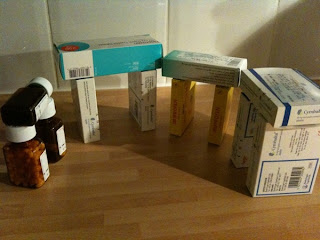Lyn Hejinian, Leslie Scalapino Remembered:
With the death of Leslie Scalapino on May 28, 2010, the world loses a writer whose visionary thinking provided her with a range of intensely experienced themes and images. It also informed the syntax of her language, which one might readily term experimental but which, more to the point, was a manifestation of the incessant vigilance she imposed on her mind and its articulations. The effort that her writing entailed was motivated by her conviction that action (e.g. writing, but also teaching, editing, publishing, insisting) and being (the present of anything or everything) are inseparable. One is one with the present. Everything is creative....
Leslie's generosity to poets (as a teacher, as an editor, as a publisher, and as an audience member at readings) was an expression not only of interest but of her ferocious persistence on behalf of something larger than art, though art was central to it. Leslie—in every facet of her complex and committed life—was engaged in a struggle for truth. It wasn't a transcendent truth but the truth of justice—particular and specific to the instant. She was an unprecedentedly original writer, because she was so very much an original thinker. She was also a fiercely compassionate writer. Suffering and injustices (of circumstance, of other people's thoughts as well as actions) were persistent themes in her writings, which sought (and spotted) alternative terrains for being, however fleetingly they could be glimpsed or said to exist.
R.D. Pohl, at ArtsBeat, Scalapino's writing punched a hole in reality, includes this about her latest published work:
Her most recent volume Floats Horse-Floats or Horse-Flows was published in March by Buffalo-based Starcherone Books. Based on the notion of "alexia" or "word-blindness (but not arising from a nervous disorder)," Scalapino generated a narrative in which "unknown words create a future."
How to describe the book? It's set in a kind of inchoate or apocalyptic continuous present in which strip miners, wounded soldiers, and dislocated polar bears wander across a deforested, animal and human corpse strewn landscape, orphaned girls are trafficked on the streets of Calcutta, insurgents sweep across the desert in Toyota pick-ups, a female detective named Grace Abe tracks a band of animal poachers across the hinterlands of Tibet, while elsewhere Venus and Serena Williams face off in a tennis match the main focus of which is Venus' "deconstructed forehand," an American president and his henchmen act to advance the interests of corporation named Haliburton, and poet named Creeley appears Virgil-like to a female narrator named One in her dreams.
It's a beautiful, horrible, synaesthetic vortex seemingly spun out of an intentionally disassociative lexicon the paradoxical end result of which is the tenuous possibility of freedom and social action. New York City based writer Douglas Manson, who read the book last year while living in Buffalo and working as an editor for Starcherone Books, recently wrote the following about it:
"I read the manuscript last year, and finally understood what she was trying to do--that the mind comes to recognize itself in the act of reading, with emphasis on "act". I've never read a book as difficult as that one, but also never read a book that made the activity of reading such a conscious, palpable one. She understood the way language structures thought so thoroughly that she could write both its trauma and apotheosis. It's not a book one likes or dislikes, but will show you, through your senses, exactly what the mind is doing when it reads."
Leslie Scalapino reads from Floats Horse-Floats or Horse-Flows, recorded and produced by Konrad Steiner. Feb. 14, 2010
(distributed by PennSound / BlipTV
New York Memorial for Leslie Scalapino
Monday, June 21, 2010 8:00 pm
Poetry Project St. Marks Church
Petah Coyne, Simone Fattal, Joan Retallack, Mei-mei Berssenbrugge, Charles Bernstein, Susan Bee, Ann Lauterbach, Susan Howe, Paolo Javier, Molissa Foley, Fiona Templeton, Laura Elrick, Rodrigo Toscano, Steve Clay, Rachel Levitsky, James Sherry, Pierre Joris, Judith Goldman, E. Tracy Grinnell, Tom White & others
There will be a wine and cheese reception to follow.
The Memorial follows two performances of Scalapino’s Noh play Flow–Winged Crocodile at Poets House
Saturday, June 19, at 7:00pm & Sunday, June 20, at 2:00pm
Directed by Fiona Templeton, with Katie Brown, Stephanie Silver and Julie Troost. Dance by Molissa Fenley. Music by Joan Jeanrenaud. Projected drawings by Eve Biddle. Cosponsored by Belladonna and The Poetry Project.
$10, $7 for students and seniors, free to Poetry Project and Poets House Members
Buddhist funeral ceremony
officiated by Abbot Norman Fischer
Thursday July 1, 2010
San Francisco Zen Center Green Gulch Farm
1601 Shoreline Highway Muir Beach, CA 94965-9759
for directions and parking: www.sfzc.org/ggf/
2pm in the Green Dragon Temple; 4-5:30 reception in the Wheelwright Center
In lieu of flowers, please consider a donation to: The San Francisco Zen Center, 300 Page St., San Francisco, CA 94102 Poets in Need, PO Box 5411, Berkeley, CA 94705 Reed College for the Leslie Scalapino Scholarship, 3203 Southeast Woodstock Blvd., Portland, OR 97202-8199 The AYCO Charitable Foundation, PO Box 15203, Albany, NY 12212-5203 for the Leslie Scalapino-O Books Fund to support innovative works of poetry, prose and art
San Francisco Memorial: Readings with poets, artists & friends
Friday November 19, 2010 (date to be confirmed)
Maude Fife Room, 315 Wheeler Hall
University of California, Berkeley
Time & further details TBA


